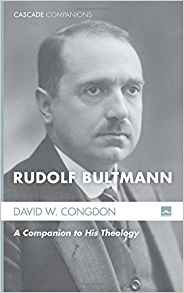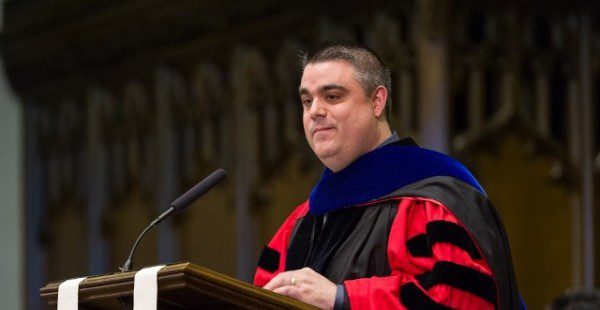David Congdon is delivering a lecture at United Theological Seminary of the Twin Cities on March 13. If you’re in the Twin Cities, check it out (11:45-12:15 am).
In anticipation of that lecture, I recently picked up Congdon’s Rudolf Bultmann: A Companion to His  Theology (Cascade, 2015).
Theology (Cascade, 2015).
It’s a brilliant introduction to Bultmann’s theology and hermeutic, placing Bultmann’s thought within the web of inter-related themes and concerns. Congdon begins with a discussion of Bultann’s understanding of eschatology, thereby showing how his thought cannot properly be appreciated apart from the pursuit of the question, “what truth comes to expression in primitive Christian apocalyptic that does not depend upon (and can be differentiated from) the ancient conception of the cosmos?” (9)
Gaining an adequate understanding of the problem of eschatology for New Testament theology helps set the stage for how Bultmann approaches all sorts of problems of New Testament interpretation: including the issue of faith and works (or “deed” and works), the question what is the kergya (or more specifically what precisely is involved in the proclamation of Jesus as Messiah and unique eschatological event), and the related problem of history and mythology–in particular what does it mean for us today that mythology is the medium through which the gospel was made known in the NT?
Of particular note, Congdon helps us to appreciate why the critique often leveled against Bultmann, that in his hands theology becomes simply anthropology writ large, is unfounded. Rather, we must place Bultmann’s notion of “self-understanding” in the context of his dialectical approach whereby knowledge of God and knowledge of self cannot be attained in distinction from each other.
Knowledge of God is not possible as an endeavor for abstract, universal, timeless principles about God’s “character” or attributes. Rather, “God” is always known for and to the person who experiences God as God. Bultmann’s existential theology is a deep reservoir for us to continue to explore in this present age.
Congdon’s volume is an enjoyable read. It’s accessible enough for the upper-level undergraduate religion or seminary student and yet packed deep with insights into one of the most important theological and biblical interpreters of the 20th century. As Congdon acknowledges, you’ll find no extensive biography here–any biographical detail come only when necessary to serve understanding of the conceptual ideas discussed. But for those of us who are interested in his thought more than in his life, this is a refreshing approach to intellectual biography.
This is the first volume of Cascade’s Companions series that I’ve read. If Congon’s is indicative of the quality of the series as a whole, it’s definitely worth checking out.











